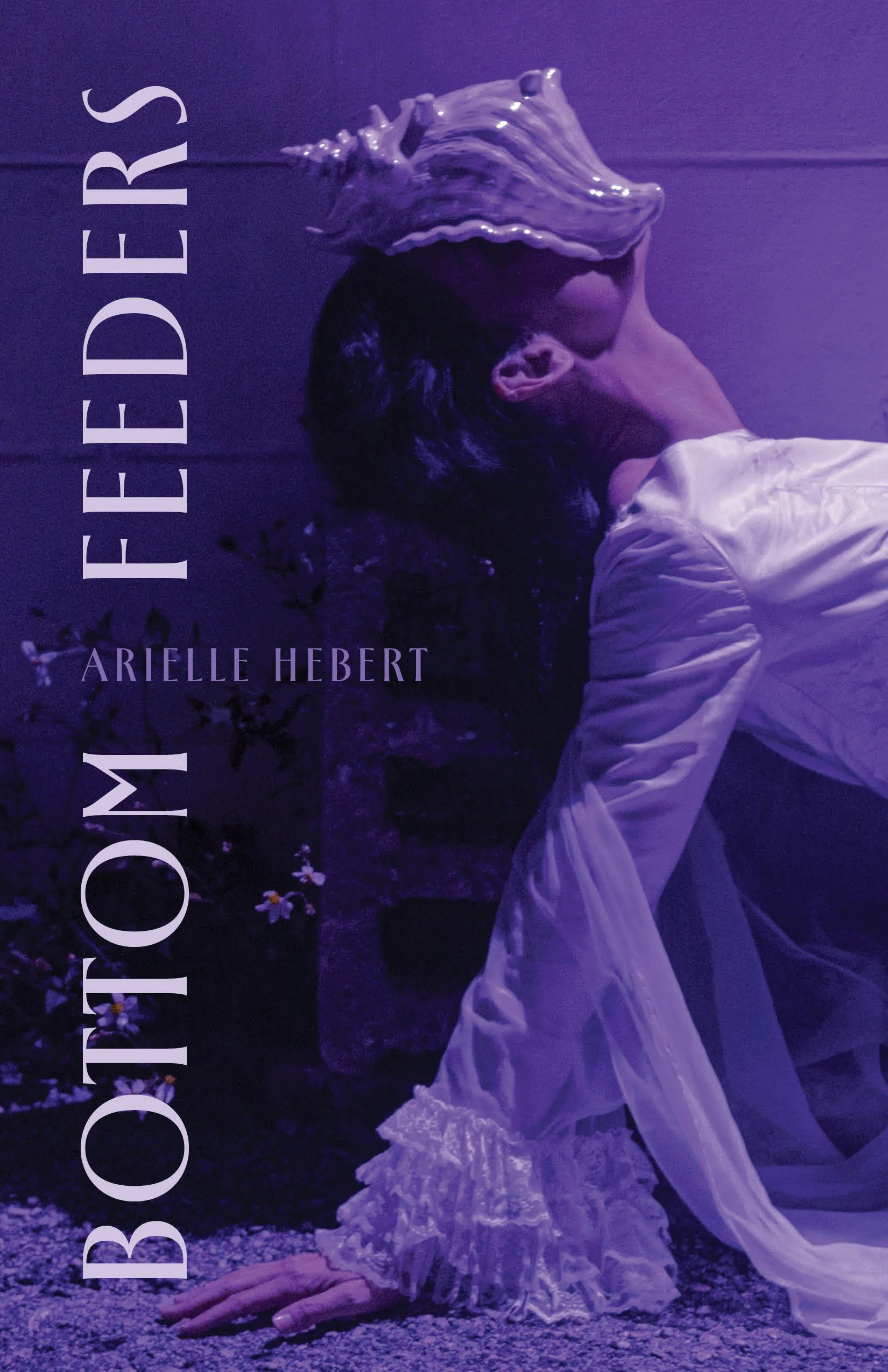Bottom Feeders
available 6/16/26
A finalist for the 2025 St. Lawrence Book Award
Published by Black Lawrence Press
Featured in LitHub’s Most Anticipated Poetry of 2026
Description
A vibrant and gritty debut from poet Arielle Hebert, Bottom Feeders is a queer coming-of-age collection set in late 2000s Florida, during the height of the opioid epidemic. Here, overdoses, red tide blooms, and hurricanes are as much a part of growing up as fleeting teenage desires, beach parties, and prom.
This is a landscape of glitter and grime, where young queer love is tested by the tides of addiction and recovery. The collection thrums with a sense of spectacle and surreality, accented by Sarasota’s history as a circus town and Florida’s deadly wildlife—alligators, needlefish, invasive snakes. The heat, humidity, and salt air of the Gulf become characters in their own right, as haunting as the love, grief, and loss found here. Despite the long shadows cast over these poems, there is beauty, friendship, chosen family, and hope in Bottom Feeders.
Early Praise for Bottom Feeders
“In exact and electrifying language, Arielle Hebert refuses to mythologize tumultuous love and life on the periphery of middle-class norms. These poems are alive with sensory-rich imagery and impactful memories—I could feel the speaker’s affection and worry for a partner addicted to drugs. Regret, yearning, gratitude are tangible, deftly braided into the lines. And what poetic lines! Hebert’s lines are striking and memorable and beautifully built. Bottom Feeders is a remarkable debut.” —Eduardo C. Corral, author of Guillotine
“Hebert’s poems are love songs to Florida, to lesbian desire, to the working-class bottom feeders who are “creatures of the deep, dark, // sifting through bits of wreckage, animals / burying ourselves and calling it survival,” and they are elegies for the speaker’s first girlfriend who lost herself to addiction. We are living in the era of Sapphic music—Janelle Monáe, Chappell Roan. Bottom Feeders belongs to this zeitgeist: a pop-poem singing the praises and tragedies of queer girlhood. I devoured this book in one sitting, pausing to laugh, cry, sigh, and behold its broken beauty.” —Claudia Cortese, author of Wasp Queen
“Hebert’s Bottom Feeders is as potent a debut collection as I have ever read. The energy of these poems pulse “between veins of light / and the thunder’s deepthroated moan,” illuminating the hardscrabble, overlooked, beautifully-quirky, risktakers that make up the lower rungs of Florida’s social hierarchy. Hebert praises the kind of people one calls when, “you need someone else’s car to cruise past your ex’s,” even when that place is a perpetual circus, much like the city of Sarasota. In the center ring of this collection is a story of early love, of growing wise despite one’s best efforts to do otherwise, and how we all become “joy hungry” in the spell-making of history and hometown. Hebert’s poems are as clear-eyed as the hurricane’s eye and just as willing to turn towards devastation, thrill, or sun-kissed lament.” —Steven Leyva, author of The Opposite of Cruelty
“Welcome to Hebert's Bottom Feeders. Welcome to Sarasota and the surrounding cities. Hebert takes us along through an “eternal summer” of many desires: to be loved and to protect the ones they love from themselves, from addiction. We join the speaker in joy and heartache, witness these desires, and thus we are closer to realizing our potential for love. These wonderful poems are adventures in staying alive, feeling good in one's body, house parties, and empty mansions. These poems are wet with tropical grit, and at their core, they are saying this is how we make life happen.” —Tyree Daye, author of a little bump in the earth
“This is a voice not often heard in poetry, life on the edge for two teenage girls, lost, stumbling, kissing, and sweating under the fierce sun of a Florida summer, one buying and selling, getting high on painkillers, the other trying to survive, to get out. The poems flow like water from one mouth to another, booze, addiction, obsession, love. These are the bottom feeders ‘looking for the poetry, / the music of things, in the graveyard.’” —Dorianne Laux, author of Life on Earth
